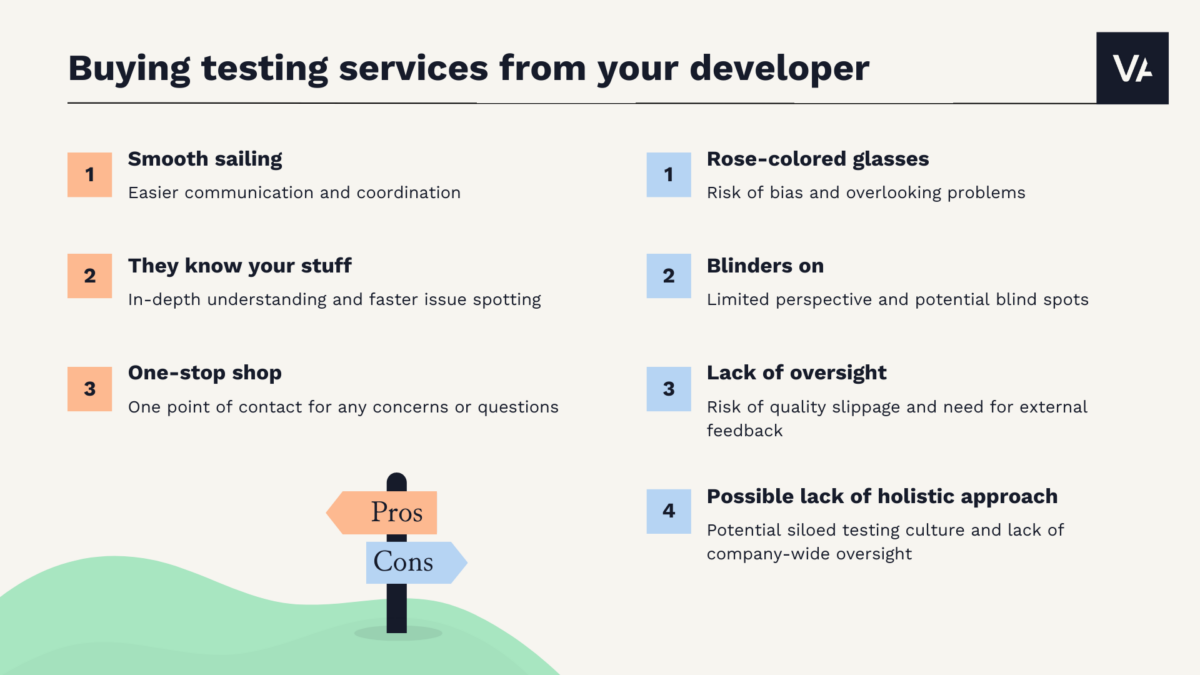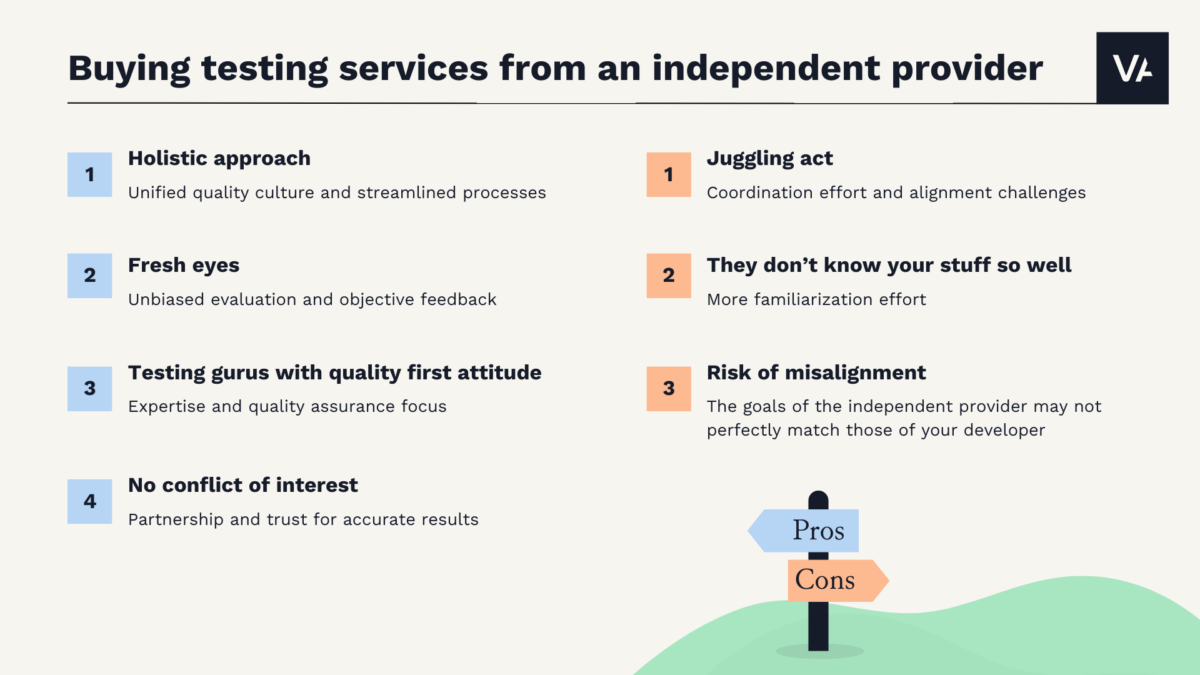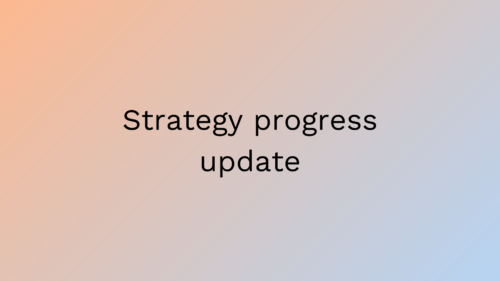Whether to buy software testing from your developer or an independent provider? Here’s what you need to know
25.04.2024

Let’s imagine that we live in a simplified world where one develops a software/application/product and then lives happily ever after. No maintenance or other complicated things that would ruin our blog post. So, in this world, when you need a new software, but you don’t have enough in-house developers and testers (and can’t or don’t want to hire them), outsourcing becomes a logical solution.
But where should you buy your testing services from – the same company doing your development or an independent service provider? That’s the question we ponder in this post.
Yes, we know that there are likely multiple development companies working with your software but for the sake of this comparison, we assume a single provider situation.
So, let’s break it down:
Buying testing services from your developer
Pros:
Smooth sailing: When testing comes from the same folks who built your software, things tend to flow more seamlessly. Communication is easier, and everyone’s on the same page.
They know your stuff: The testing team that worked on your development knows the ins and outs of your software. They’ll likely spot issues faster and test more efficiently.
One-stop shop: Dealing with just one vendor for both development and testing simplifies things. You’ve got one point of contact for any concerns or questions.
Cons:
Rose-colored glasses: There’s a risk that the testing team might gloss over issues to avoid making the developers look bad. Objectivity could be at risk.
Blinders on: Testing from the same company might mean missing things that an outsider would catch. Different perspectives are important for thorough testing.
Lack of oversight: Without an independent eye, quality assurance might slip through the cracks. Getting an outside opinion helps ensure top-notch quality.
Possible lack of holistic approach: Typically the ratio of QA specialists to developers is roughly 1:5. So, for example, you could have five products, all initiated at different times and developed by different companies, each having 5 devs and one QA specialist. This way your company-wide testing culture can become siloed as all your five QA specialists come from different companies.

Buying testing services from an independent provider
Pros:
Holistic approach: If you don’t have to buy it all from one shop, you can consider outsourcing your whole quality to one company. This way you can have one quality culture and ways of working even though there would be different vendors for each of your products. Having one party responsible for defining the testing culture, testing your API’s, E2E testing and so on, is a huge advantage.
Fresh eyes: Independent providers offer an unbiased look at your software. They’ll spot issues without any hidden agendas.
Testing gurus with quality first attitude: These providers specialize in testing, bringing a ton of experience and know-how to the table. They’ve seen it all and know what works. Their main focus is making sure your software is top-notch. They’re all about quality assurance and won’t settle for anything less.
No conflict of interest: When the same company performs both development and testing, there may be a conflict of interest. The development team may be reluctant to uncover and report issues that reflect negatively on their work. With an independent testing company, there’s no conflict, as their goal is solely to provide accurate and reliable testing results. This becomes especially evident in the acceptance testing phase.
Cons:
Juggling act: Coordinating with an independent provider alongside your developer requires some effort. Making sure everyone’s on the same page is crucial.
They don’t know your stuff so well: Naturally if the same company handles both development and testing, they are deeper in the organization and know better how it works and what the culture is like and so on. To put it simply, instead of one, you need to familiarize two companies with yours.
Risk of misalignment: Sometimes, the independent provider’s priorities might not align perfectly with your developer’s. Clear communication is key to avoid any clashes.

Conclusion
Our comparison had maybe a few more pros for the independent provider and cons for the one-shop-solution but basically it was a tie as it depends on what you sum up under one topic.
If you have multiple products/software and want your quality to be led holistically, an independent quality company could be best fit for you. This also applies if you want, well, an independent and impartial view of how things are. And lastly, if you want the best expertise, you’ll find it from the QA-specialized companies.
Then again, if you’re after the smoothest and deepest collaboration you should consider buying development and testing from the same vendor. This way you can obtain a partner who knows your company and business best and can thus guide you best in software development too.
Naturally, if you need independent-kind QA services, we are here to help!
- Blog |
- QA |
- Software testing




